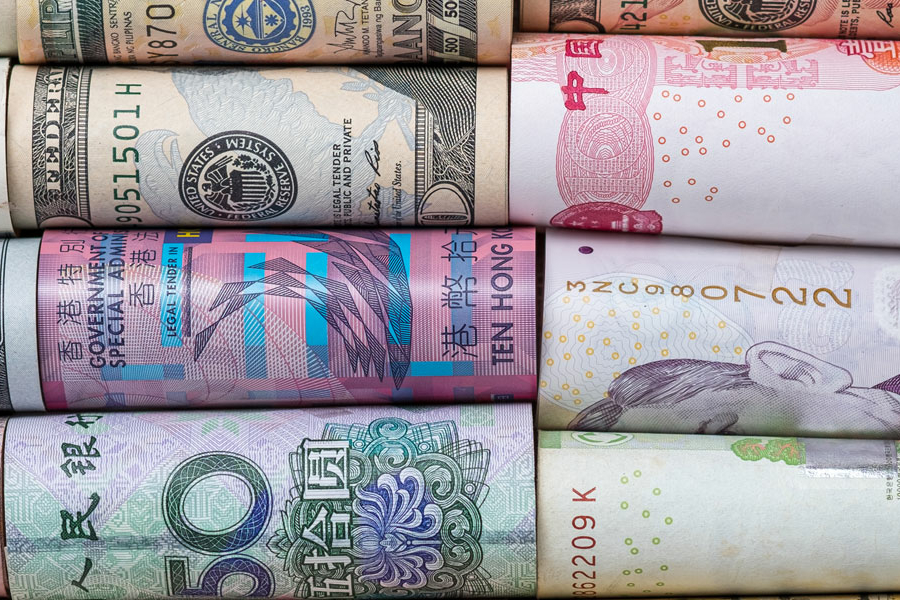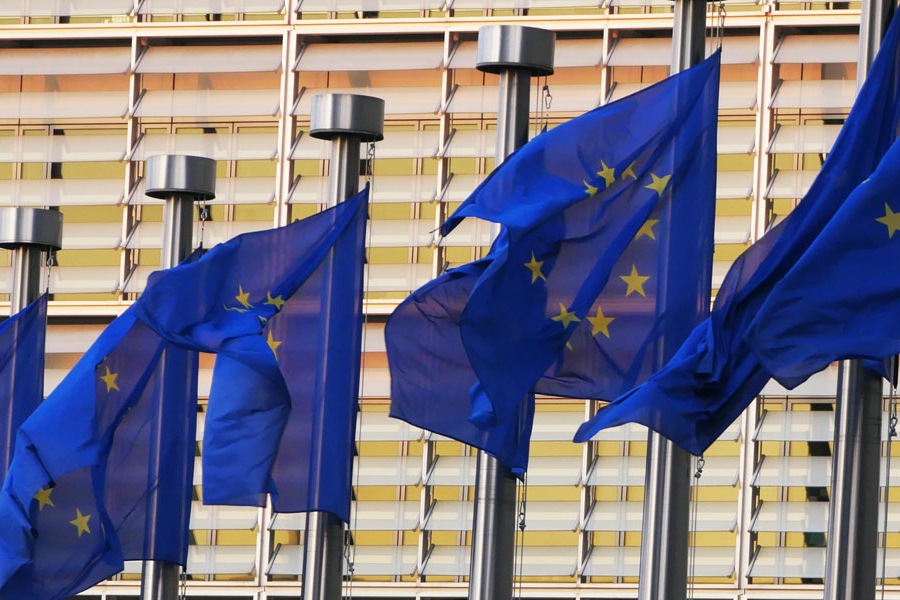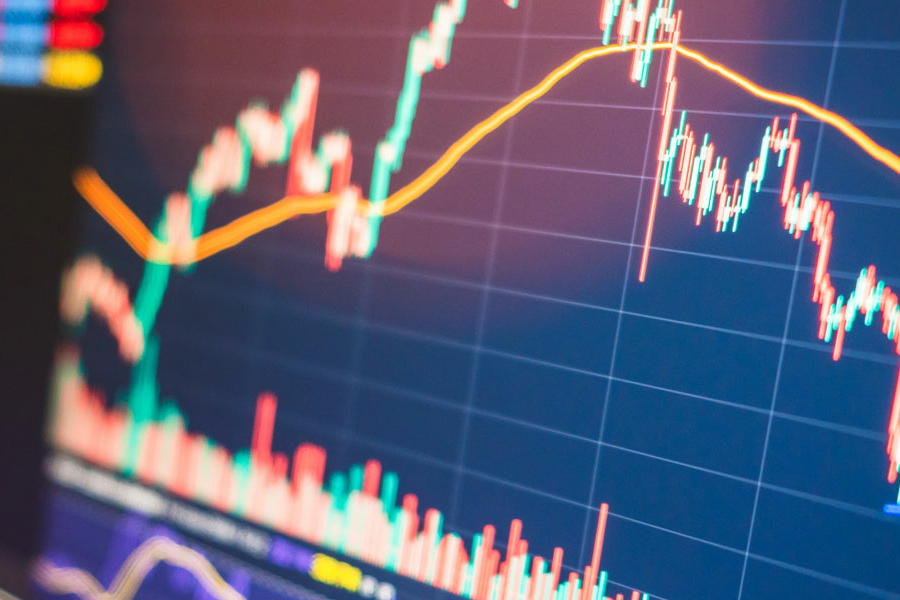Foreign direct investment reviews increasingly impact cross-border deals
Continued emphasis on FDI around the world, particularly in the US and Europe, creates additional challenges for investors

The past two years have witnessed significant geopolitical fracturing and macroeconomic difficulties that continue to hamper certain dealmaking. Several sectors have posted transactional lows throughout 2023, and persistent inflation and high interest rates look set to remain in place for now. Economic decoupling and growing global regulations also create transactional hurdles, while China's slowing economy and now the Israel-Hamas war add to a steady sense of market unpredictability.
And yet, with volatility comes opportunity, such as infrastructure and renewables projects, growth in the semiconductor industry, and the rise of private credit. As many companies and investors in Taiwan are discovering, economic or regulatory setbacks are an invitation to think innovatively and to recalibrate their approach. With the right information and careful planning, they can position themselves for success now and in the future.
Following our 18th Annual Taiwan Roundtable Series in September, we hope this year's report for Taiwan-focused companies and investors provides helpful guidance in a rapidly evolving political and economic landscape.
We begin with a look at the continued proliferation of foreign direct investment (FDI) regimes in the US and the European Union. The Committee on Foreign Investment in the United States (CFIUS) has ramped up its activity to an all-time high, while EU member states continue to implement, refine and expand their regimes. Many FDI focus areas overlap with those of Taiwanese companies—technology in particular—meaning early-stage analysis is critical in this arena.
We then analyze the impact of forum selection in contracts with mainland Chinese (PRC) companies. Despite the tensions between PRC and Taiwan, their economies remain inextricably intertwined, so Taiwanese companies should consider how the provision of "interim measures" in Hong Kong arbitration can benefit their business.
Next, we provide an overview of the EU's new Foreign Subsidies Regulation (FSR), which scrutinizes foreign financial contributions received by companies engaging in M&A and public tenders in the EU, and grants the European Commission the power to investigate any other potentially distortive market situation. Taiwanese companies should be aware that the FSR casts a wide net and could also encumber merger control and FDI filings.
We then turn to the growing popularity of the US International Trade Commission (ITC) for trade secrets litigation. The ITC's unique global reach means trade secret owners can make a claim of misappropriation on any product that enters the US, even if the trade secret and alleged misappropriation are entirely extraterritorial. The risk of these claims has broad implications, especially for foreign companies trying to diversify and broaden their global footprint.
Our transaction-focused piece looks at the evolution of M&A, debt finance and investment funds practices in a tough macroeconomic environment. Certain technology and renewables remain attractive for M&A and private equity, while local consumer brands are considered the next target of credit investors, and the funds space is seeing growth in the secondaries market and NAV financings.
Aligning with the Roundtable Series' "clubs and fences" theme, we consider trade and sanctions through this framework. Taiwanese companies have the difficult task of balancing often-competing interests in Asia-Pacific and the West, but they will benefit from taking advantage of regional trade clubs and nimbly navigating regulatory fences that include tariffs, sanctions and export control.
Lastly, we examine two major proposed changes to US antitrust policy by the US Federal Trade Commission (FTC) and the Department of Justice, Antitrust Division: the FTC's proposed ban on non-compete clauses and both agencies' radical proposed changes to the Hart-Scott-Rodino Form. One key takeaway examines the possible use of employee NDAs to protect company information.
We look forward to discussing these and other issues with you.
Continued emphasis on FDI around the world, particularly in the US and Europe, creates additional challenges for investors

Provision of "interim measures" strengthens Hong Kong's position as a level playing field in arbitration against PRC counterparties

The bloc's new scrutiny of foreign financial contributions poses regulatory hurdles for Taiwanese investments in M&A and public tenders in the EU

The growing popularity of the ITC as a regulatory venue with global reach has implications for Taiwanese trade secret owners and investigation targets

M&A, debt finance and investment fund actors seek alternative routes to dealmaking in the face of a dim macroeconomic outlook

The evolving trade and sanctions landscape reflects a new global regulatory paradigm

US antitrust agencies step up enforcement with proposed policy changes that create uncertainty and new regulatory burdens


The evolving trade and sanctions landscape reflects a new global regulatory paradigm
The relatively open cross-border flow of goods, services, capital, people and data that characterized the past four decades of globalization is giving way to a new era of "clubs" and "fences." Clubs form when countries agree to harmonize their regulations, lower barriers and facilitate preferential trade among club members. Fences are regulatory barriers that slow or block business activity across borders.
Taiwanese companies are in a challenging spot in this evolving and volatile landscape, as they must balance interests in important locations in Asia-Pacific and the West, which sometimes may be difficult to reconcile. The following discusses clubs and fences in the context of trade and sanctions.
From one club to many: The international trading system has long resembled a club. The World Trade Organization (WTO) is the preeminent one, and its 164 members, including Taiwan, had to commit to free trade principles as a condition of membership. However, the WTO as a trade club today risks losing relevance as progress on significant new initiatives has slowed considerably.
Faced with a WTO impasse on further trade liberalization, a growing number of countries have joined regional trade agreements, which more than tripled in number from 97 in 2000 to 360 in 2023. These regional clubs have grown in scope and ambition, going beyond preferential tariff commitments to achieve broader regulatory harmonization among members. As an illustration, according to the World Bank, the average trade agreement in the 1950s covered eight policy areas, whereas more recent agreements have covered an average of 17. Recent examples of this trend are the Regional Comprehensive Economic Partnership (RCEP) and the Comprehensive and Progressive Agreement for Trans-Pacific Partnership (CPTPP); notably, Taiwan is not presently a member of either.
Nonetheless, to remain competitive, Taiwanese companies should be familiar with the benefits, preferences and requirements of these clubs because Taiwanese entities play an important role in regional supply chains as owners and managers of production facilities throughout Asia-Pacific.
Fences and barriers: Countries also are testing the limits of traditional trade rules through expanded unilateral trade actions and more vigorous industrial policy and subsidies. Increasing unilateral self-help measures serve as "fences" in the international trading system, restricting the movement of goods to and from target states. The most salient example is the "tariff wall" against Chinese imports erected by President Trump and maintained by President Biden, and the retaliatory tariffs imposed by China. Taiwanese companies must be nimble to avoid being caught in the middle. Given these fences, and the current trend toward "de-risking" supply chains, exports of goods to the US from ASEAN and other third countries have been rising. In reaction, the US has dramatically increased investigations into whether such third-country exports are "circumventing" or "evading" the tariff wall on Chinese goods, another risk factor for Taiwanese companies.
The WTO adjudication system, which once acted as a brake on unilateral barriers and subsidies, has largely collapsed as a meaningful discipline. Since its inception in 1994, the WTO has acted as a forum for resolving most international trade disputes, ensuring the uniform application of trade law, and offering political and legal mechanisms to maximize compliance. In recent years, however, the WTO has gradually been blocked from serving in this role due to disagreements among key stakeholders. Indeed, at present there is not a single Appellate Body adjudicator, and the Body has stopped functioning altogether.
Sanctions historically have been limited in number and deployed by powerful nations against smaller economies. While the number of sanctions regimes in place in any given year will vary, that number nearly doubled between 2000 and its 2014 peak of 558 distinct regimes. Sanctions against Russia following its 2022 invasion of Ukraine served as a new chapter in the role and scope of sanctions.
The Russia sanctions are unprecedented in three ways. First, a substantial sanctions package has targeted a major world economy. Second, a broad coalition of countries has enforced the sanctions, led by the G7. And third, while the Russia sanctions draw on a range of established and tested economic mechanisms and legal authorities, they are far broader in scope and include several novel attempts at economic isolation, including sanctions targeting particular services or activities such as dealings in debt or equity.
Russia has responded with countermeasures generally aimed at blocking or dulling the impact of foreign countries’ sanctions. These countermeasures often leave foreign companies doing business in Russia or seeking to exit Russia in a difficult position, where compliance with foreign sanctions may be incompatible with Russia’s countermeasures or vice versa.
Only extraordinary circumstances are likely to generate the political consensus needed for the imposition of such far-reaching sanctions imposed by a broad coalition of governments against a major economy. When they do, however, the resulting fences can have significant economic impact on sanctioned states, the states imposing sanctions, as well as businesses and the global economy.
Export controls on the transfer of goods, services and technologies may be viewed as a corollary of multilateral sanctions regimes. Export controls are country-specific and can be imposed unilaterally or in coordination with other exporting nations, such as via the Wassenaar Arrangement. They can be imposed for foreign policy, national security and anti-proliferation reasons. Penalties for violations can be severe.
The Trump and Biden administrations significantly increased restrictions on the transfer of advanced technologies to China, with the highest controls on certain designated end users such as those placed on the "Entity List." The technologies covered by these more recent restrictions generally are not munitions or dedicated defense items, but rather are so-called "dual-use" technologies—commercial items deemed to have a potential national security-related use or sensitivity. The US has sought to erect high fences around advanced technologies like AI, semiconductors, quantum computing and robotics, and has sought buy-in from other countries that are important exporters of such technologies. Recent measures have significantly expanded the scope of semiconductor export controls, causing substantial ripple effects throughout the electronics supply chain.
The controls are enforced extensively outside the US. They apply not only to direct exports, but also to re-exports, downstream sales and transfer in-country to foreign nationals. They apply not only to goods made in the US, but also to goods made outside the US if they are deemed to be the direct product of certain US technology or contain specified thresholds of controlled US components.
Taiwanese companies are world leaders in the development, production and export of advanced technologies. As such, it is imperative for them to stay abreast of evolving export compliance issues.
In sum, the trade and sanctions landscape for Taiwanese companies is changing in important ways. As technology leaders and key players in global supply chains, Taiwanese companies should position themselves to take competitive advantage of regional trade "clubs," and to navigate applicable tariff, sanctions and export control "fences," in order to thrive in the years to come.
White & Case means the international legal practice comprising White & Case LLP, a New York State registered limited liability partnership, White & Case LLP, a limited liability partnership incorporated under English law and all other affiliated partnerships, companies and entities.
This article is prepared for the general information of interested persons. It is not, and does not attempt to be, comprehensive in nature. Due to the general nature of its content, it should not be regarded as legal advice.
© 2023 White & Case LLP